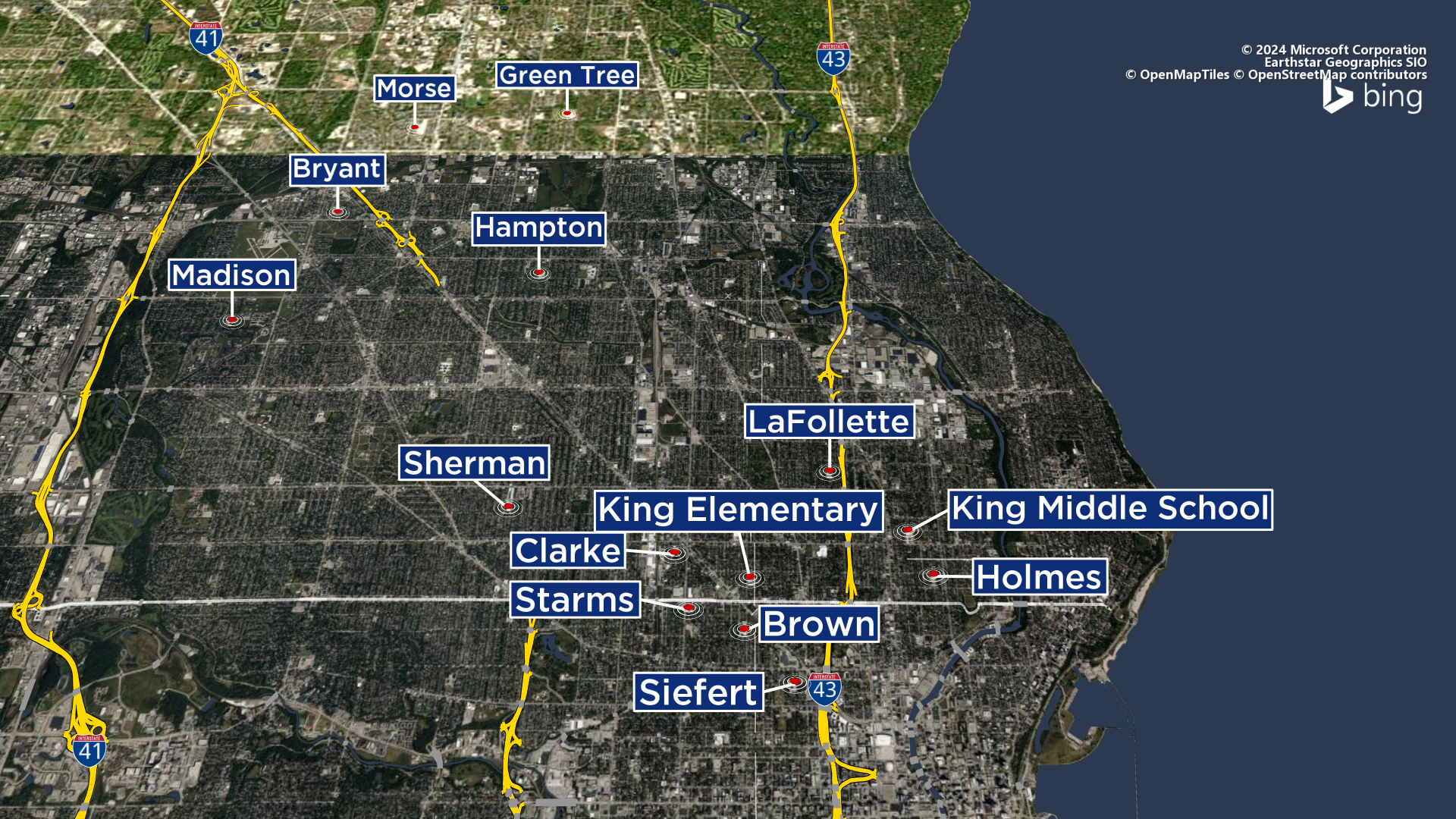Should MPS close schools before asking to raise taxes? The district says savings wouldn't be significant
MILWAUKEE (CBS 58) -- There are fewer kids in Wisconsin, and because of that, declining enrollment is an issue for numerous school districts across the state. Milwaukee Public Schools (MPS) is among those districts with considerably fewer students.
As MPS asks voters for an additional $252 million through a referendum on the April 2 ballot, district leaders defend their decision to not finalize a plan for closing or consolidating underutilized schools before seeking to raise property taxes.
In an interview with CBS 58, Superintendent Keith Posley said MPS was still working on a new master facilities plan. When asked why the district wouldn't wait until it knew which schools could potentially close or be consolidated and how much money that would save, Posley defended the decision to pursue a referendum this spring.
"We are doing it all together, and if you noticed, our strategic plan talks about right-sizing the district," Posley said. "That process has already begun."
If the referendum passes, property taxes would increase by $324 for a home valued at $150,000. For a home valued at $250,000, it would mean a $540 tax hike.
Currently, dozens of the district's schools have enrollment totals well below their building's capacity. According to a building inventory report MPS is required to give the Legislature's Joint Finance Committee, 36 schools have an enrollment number than is than 70% of capacity.
23 schools are operating at less than 60% of their buildings' capacity, and 14 schools are less than half-full.
Colleston Morgan, executive director of the City Forward Collective, which advocates for both public and private schools in Milwaukee, said MPS should have presented the public with multiple options for closing and consolidating schools before going to referendum.
"It certainly seems like a large bit of putting the cart before the horse," Morgan said. "Right-sizing [the amount of schools] can mean lots of different things, and I think it's for the district to weigh out those options and put those choices before us."
Other Southeast Wisconsin districts have specified their closure conversations or even acted on them. Wauwatosa district officials have discussed closing two schools. In December, the school board in Kenosha voted to close six schools.
MPS: Closing schools wouldn't save much money
Posley said the savings from closing schools wouldn't be nearly enough to offset the need for additional tax dollars. Part of the problem is the map; all 14 schools at less than 50% capacity are on the city's north side. At the same time, numerous south side schools are either at or above full capacity.
"Most districts can just say, 'Hey, we're gonna right-size because everyone in this area goes to this school.' That ain't the case in Milwaukee," Posley said. "You may live here, and you go to school in another area."
Posley referred to the district's collection of Montessori and language immersion schools, which draw students from all corners of Milwaukee and its suburbs via open enrollment.
According to Posley, district estimates show closing a high school could save as much as $1 million while closing smaller elementary schools might only preserve $300,000. Morgan said he believed those figures were a bit low.
If the district were able to close 15 schools at an average savings of $500,000, that would save the district $7.5 million. If the average savings were $750,000 per school, closing 15 schools would yield $11.25 million.
For a district facing a $200 million shortfall by 2025, Posley insisted any conversations about consolidation should not precede MPS' push to secure more revenue.
At the same time, MPS school board members had the option of pursuing a $244 referendum, which would've lessened the proposed property tax hike. Even though the district's administration recommending that choice, the board voted 7-1 in January to instead ask the public for $252 million.
Beyond that, Posley said closing schools would not guarantee immediate savings. He pointed to a 2015 state law Republicans passed when they had full control of state government.
The law requires MPS to keep any vacant school on the market for at least two years before selling it. At the time, conservatives believed MPS was purposely stonewalling charter and private school operators from taking over the buildings.
City leaders said there wasn't much interest in those buildings because MPS tended to shutter older buildings with more expensive operating costs. That meant any new private school director would have to commit to a pricey renovation.
"When Channel 58 did a report back in '19, we still have buildings that are still out there on the market that we are covering and taking care of everyday," Posley said.
Posley said, in addition to providing more funding, the district wants the state to loosen vacant building restrictions. If that happened, Posley said MPS would have an easier time selling shuttered buildings to developers while spending less on maintenance.















